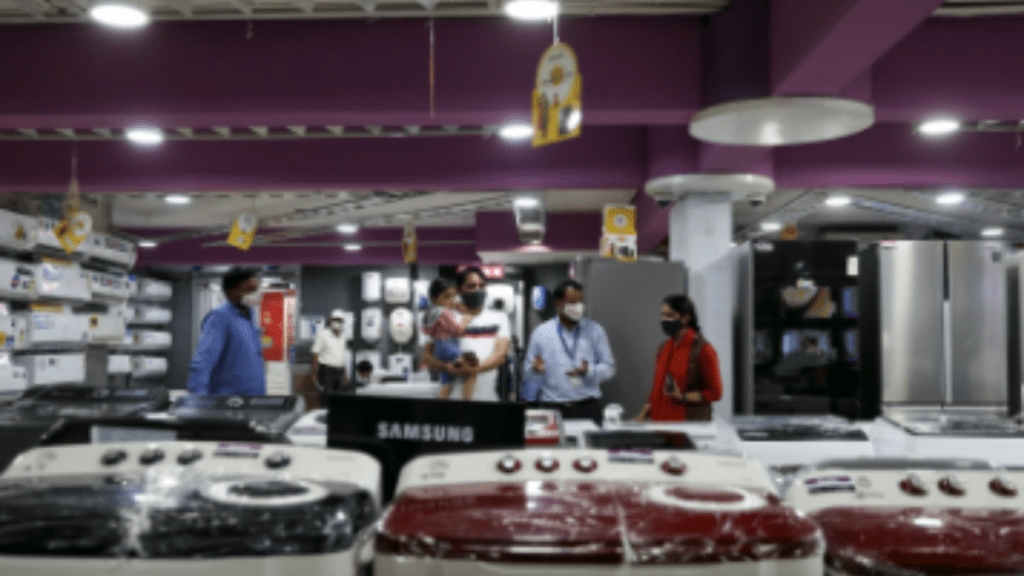Consumer durable manufacturers are expected to record a revenue surge of 11-12 per cent this fiscal, continuing the healthy run after a strong 13 per cent growth last fiscal, stated a report by CRISIL Ratings. This, it added, will be driven by rising adoption of consumer durable financing, which supports the trend of premiumisation, resulting in better realisations. Further, festive spending and strong growth in housing sales should support overall volumes, following strong demand for cooling products during the intense summer season this fiscal.
The report maintained that the operating margin will improve to 6.8-7 per cent this fiscal, from 6.5 per cent last fiscal, driven by better operating leverage and stable raw material prices, but remain below pre-pandemic highs owing to intense competition.
While total capital expenditure (capex) this fiscal, will remain similar to that incurred last fiscal, consumer durable makers will invest on introducing new features that offer differentiated value proposition to consumers. Per the findings of the report, strong cash generation and healthy liquid surplus will keep reliance on external debt low, supporting the credit profiles of players.
CRISIL Ratings analysed eight consumer durables makers, accounting for 55-60 per cent market share in value terms, to release the findings.
Shounak Chakravarty, Director, CRISIL Ratings Limited, said, “Increasing adoption of easy financing options such as no-cost equated monthly installments (EMIs), credit card loans and buy-now-pay-later schemes are making high-value premium purchases more affordable and accessible. Loans under this category are expected to grow 18-20 per cent this fiscal, after having almost doubled over the last four years. Increasing affordability, rising aspirations and changing lifestyles are also supporting the premiumisation trend which will drive revenue growth of 11-12 per cent for the consumer durable sector this fiscal and next fiscal too.”
There has been a continuous rise in demand and preference for smart home compatible consumer durable products which are IoT (internet of things) enabled and provide seamless integration with mobile devices. Further, demand for appliances with higher capacity continues to outpace demand for entry-level categories.
Per the study, changes in buying patterns (stocking up on weekends) and growing availability of frozen food are driving up demand for larger capacity refrigerators. Further, the rising trend of weekend washing, because of the increasing proportion of the working population, is driving sales of washing machines with higher capacity. In the television segment, the narrowing gap between the costs of 55+ inch and 40-43 inch screens is driving demand for larger screen televisions, consequently helping players improve their average product realisations.
Owing to intense heat waves this summer, air conditioners and refrigerators did brisk sales. Further, festive demand coupled with a sharp 22 per cent uptick in housing sales over the past couple of years will also translate into higher demand for consumer durables this fiscal as new homeowners furnish their properties.
Prateek Kasera, Team Leader, CRISIL Ratings Limited, said, “Healthy revenue growth and range-bound raw materials prices (~70 per cent of overall cost) will help players improve their operating profitability this fiscal and next. However, the extent of improvement will be limited to 30-50 basis points (bps) each over this and next fiscal owing to stiff competition in the segment necessitating higher discounts by brands to maintain market share. Further, to outpace competition, players will also be focusing on introducing products with enhanced and differentiated features.”
CRISIL said that the majority of the capex (Rs 1,800-2,000 crore) this fiscal will be done towards enhancing capabilities for developing new age IoT-enabled smart devices. Strong accruals and healthy liquid surpluses (over Rs 4,500 crore as on March 31, 2024) will ensure debt levels remain low and support credit profiles of players.
Going ahead, it said, volatility in prices of key raw materials such as steel, copper and aluminium, potential regulatory actions curbing easy financing schemes and extent of competitive intensity in the sector will bear watching.
